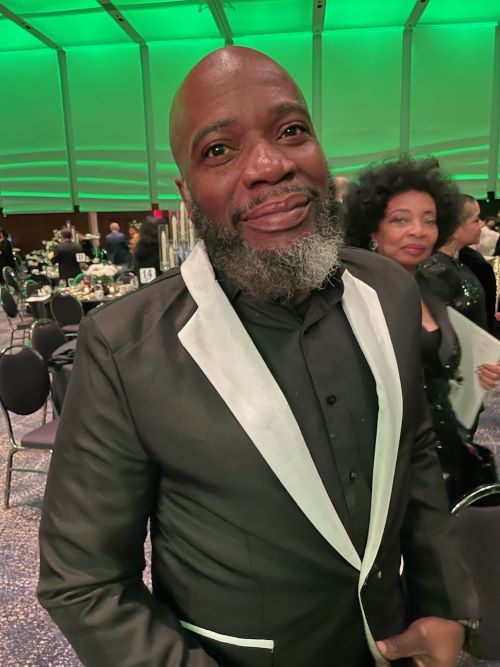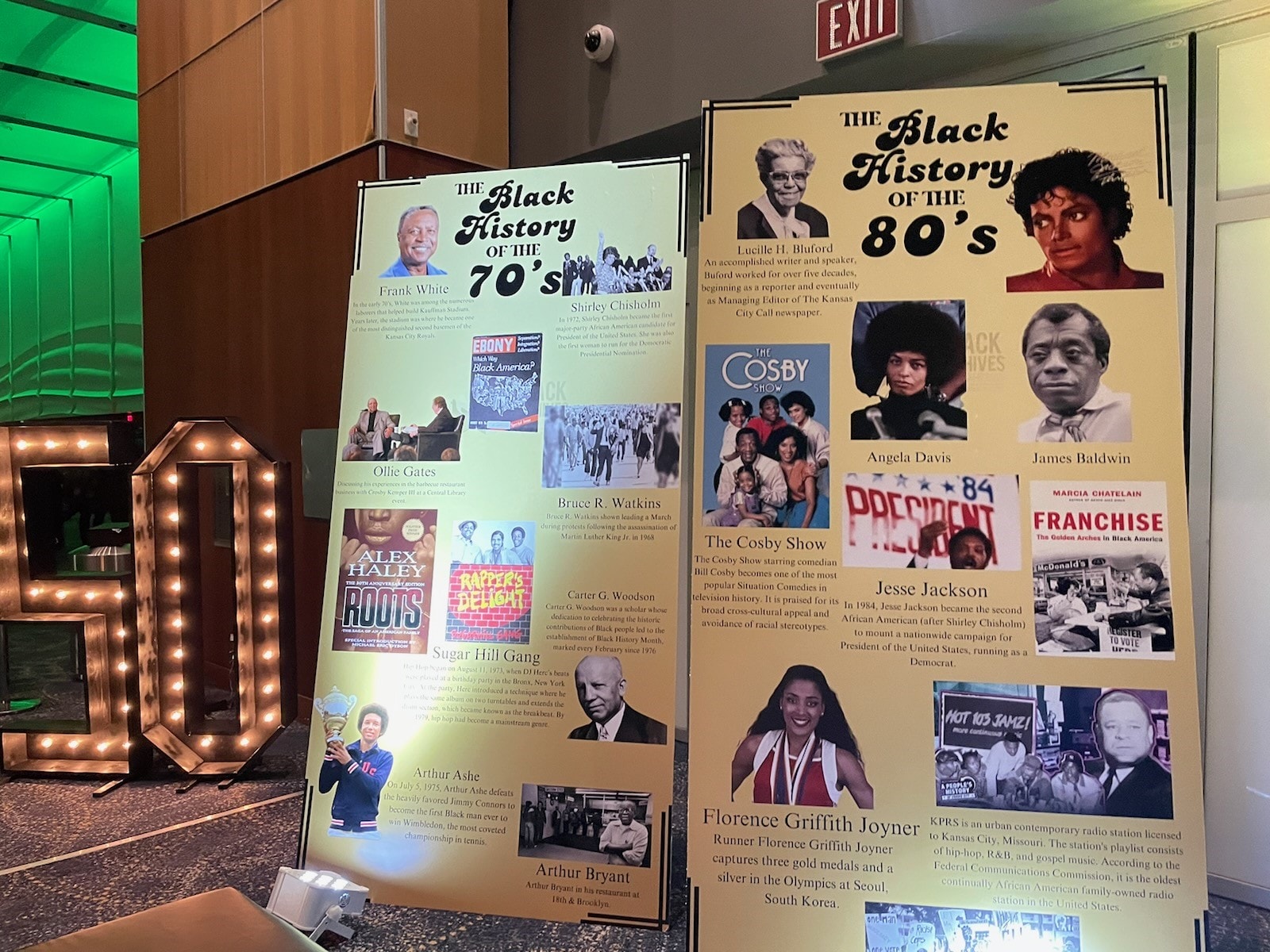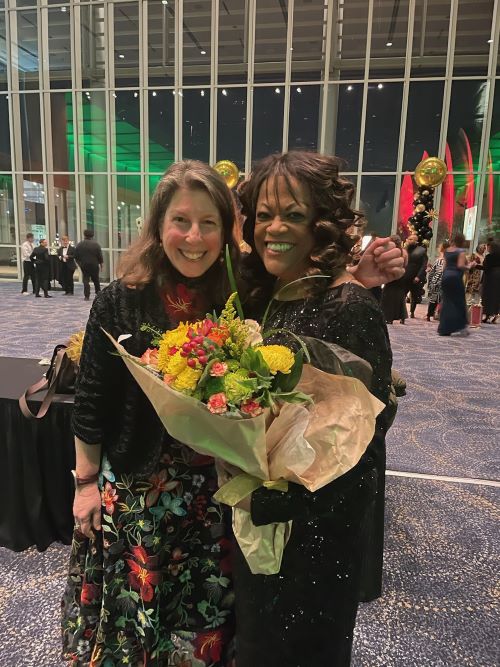Black Archives of Mid-America Marks 50th Anniversary Preserving Black History
Published February 20th, 2024 at 6:00 AM
Above image credit: Members of the Black Archives of Mid-America's Youth Coalition Network attended the 50th anniversary gala. The group is about four years old and works to develop their skills for research, such as a recent project on reparations. (Mary Sanchez | Flatland)More than half of the Black newspapers that once existed in America were destroyed — burned by white mobs.
That fact alone underscores the need for institutions like the Black Archives of Mid-America, which celebrated its 50th anniversary on Saturday.
The point about the demise of so many Black newspapers was made by Michael Harriot in his keynote remarks.
“You have to teach about the white mob,” said Harriot, a writer and author of “Black AF History: The Un-Whitewashed Story of America.”

Harriot said that he often encounters the same two sentences as he searches for primary source materials on Black history.
“Burned by a white mob. No surviving copies exist.”
It happened when he went looking for information about a national slave revolt that was planned shortly before the Civil War broke out. It also happened when he tried to find information on many other historical events. Most of the information was chronicled from the perspective of white, but not Black, writers.
America’s failure to teach how white mobs destroyed information about Black life impacts how issues are seen today.
“If you don’t teach about redlining, and you don’t teach about segregation, your children might believe that the people who live in those neighborhoods must not work hard,” Harriot said.
Similar false narratives have been built around educational achievement.
But it was Black people, who helped write the state constitution of South Carolina, who insisted on including a constitutionally mandated public school system. They did so because they so valued education, Harriot said.
Under slavery, they were punished for learning to read. And a quality education was something only afforded to wealthier white people.
These stories are as important to tell as the ones that show the resilience of Black families, he said.
Moreover, arguments about whether some recent incident is racist or not happen because people are unaware of the historical context, the past racism that affects what has occurred, he said.
In short, erasing Black history allows for the creation of false narratives.
“You have to teach about the white mob,” he said. “It explains why things are happening. It explains what will happen.”
The late Horace M. Peterson III founded the Black Archives of Mid-America on May 8, 1974.
He began simply enough, collecting buttons, brochures and other things that showed Black life and culture. He did this while still in middle school.
For a time, he stored items in the trunk of a car. A room at the Paseo YMCA held the items, then a rented apartment was used. Finally, Peterson moved everything to Fire House No. 11 in the 18th and Vine Jazz District, which was the first Black fire station in the area.

Peterson died in March 1992 in a drowning accident.
A video tribute to Peterson was aired during the gala, and the ballroom featured local voices remembering his contributions.
U.S. Rep. Emanual Cleaver II was awarded the Horace M. Peterson III Legacy Award.
“We would not be in that facility today if it were not for Congressman Cleaver,” said Carmaletta M. Williams, CEO of the Black Archives.

Cleaver’s advocacy helped secure the building where the archives is now housed, 1722 E. 17th Terr., which is also within the Jazz District.
“The history of Black people in America is complicated by many factors, including colonialism, enslavement, institutionalized racism and continuing efforts to malign, marginalize and re-define our success,” wrote Williams in a tribute to Cleaver.
Peterson refused to accept revisionist history for Black Americans. Likewise, neither has Cleaver, Williams said.
John McGee, president of the Black Archives Youth Coalition Network, praised the work of the archives with young people, including efforts around voter registration, help with archiving and the development of research skills.
“Education means emancipation,” McGee said. “And education is our liberty.”
Flanked on stage by other members of the youth network, McGee said that he once was jaded about the inequities and racism faced by Black people in America. But his affiliation with the archives changed his focus.
Rather, he wants to be about change, and working toward a more just and equitable society.
“The utmost valuable act that older generations can do is lay a solid foundation for future generations to build upon, so that we can continue the fight for what you have started,” McGee said.
Mary Sanchez is senior reporter for Kansas City PBS.


